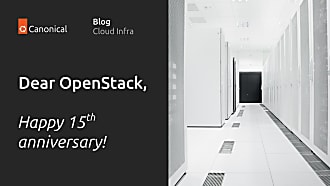Canonical
on 2 September 2014
Your guest, your choice: running Windows Server on Ubuntu OpenStack
It is no secret that Ubuntu is by far the most popular cloud guest OS on the world’s major public clouds. Figures range from 55-75% depending on the source and the cloud provider in question, but it’s something we are very proud of and a status we seek to maintain and grow. However, the spirit of Ubuntu has always embraced openness and collaboration with others. That’s why we created OIL, the Ubuntu OpenStack Interoperability Lab, in which we test thousands of third-party solution combinations against OpenStack to ensure compatibility and high performance, and it’s why the Ubuntu ecosystem is one of the largest and fastest growing in the industry.
As a continuation of this trend, we have been working with Microsoft to develop and certify virtio drivers, virtualised Windows drivers that allow Windows guests to run on KVM hypervisors and subsequently, on OpenStack. This allows enterprises with a large Windows Server footprint to build OpenStack clouds on Ubuntu but keep their guest OS and workloads untouched. The virtio drivers provide optimised performance for a guest running on an Ubuntu OpenStack cloud, and are available for all current Windows Server editions, including Windows 2008R2, Windows 2012, and Windows 2012R2.
The drivers are available to Canonical customers as part of the Ubuntu Advantage support programme. Ubuntu issues a Hardware Enablement (HWE) kernel release every 6 months, and Canonical will also be supporting those kernels against the Windows Server releases, so customers will always enjoy updated Windows drivers for their guests. The drivers will run on any Ubuntu Server Long-term Support (LTS) release as well as any OpenStack version supported under that release.
Canonical has gone through the certification process under Microsoft’s Windows Server Virtualization Validation Program (SVVP) which included Microsoft signing off the driver as a stable and reliable plug-in, as well as certifying the full platform, which means endorsing that Ubuntu can run Windows guests in a stable way. The end goal is to provide a reliable platform for all of our customers and give them a choice to run Ubuntu or Windows equally well.
If you are a current Canonical customer and wish to take advantage of the new drivers, please contact your Canonical customer support representative. For information on Ubuntu Advantage and how to join, please check the UA pages and use the chat function or contact form to speak to a sales representative.



